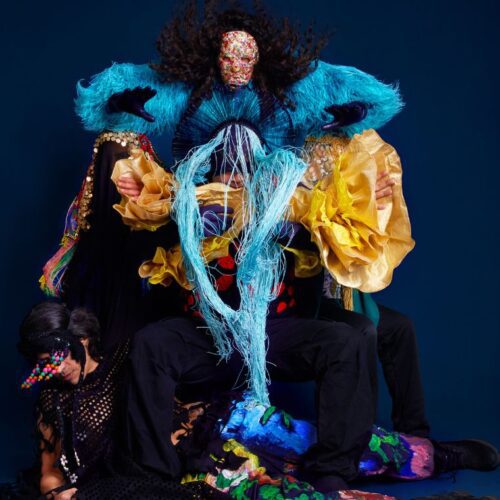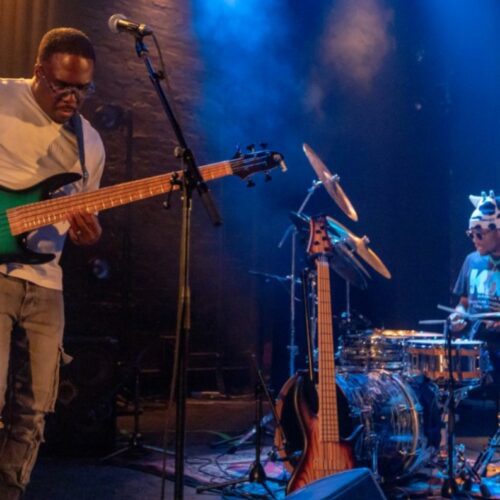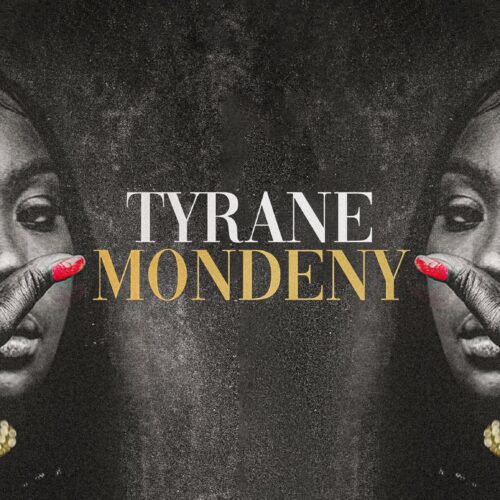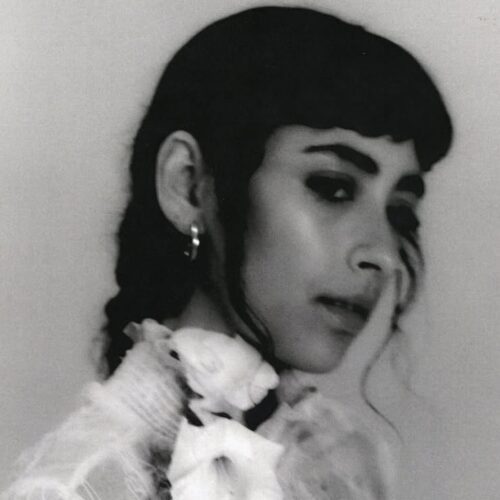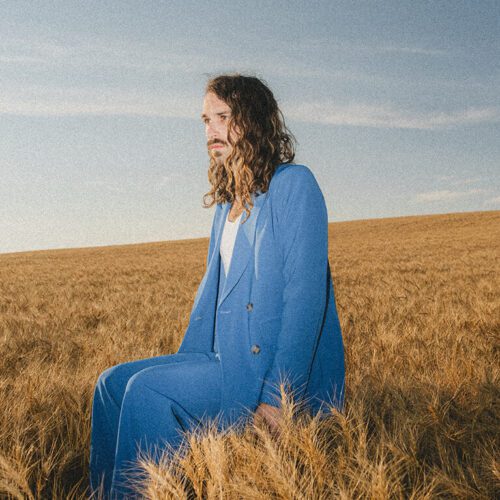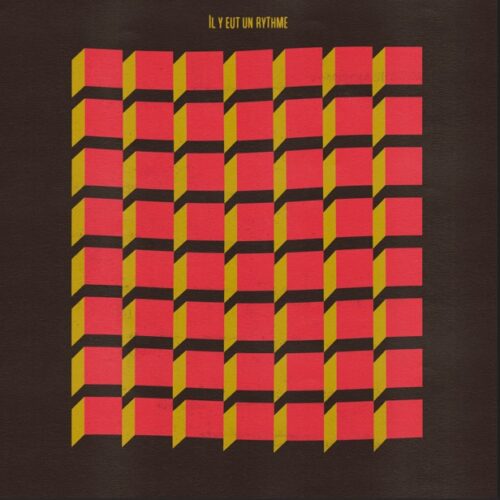Additional Information
With Sympathy For Life, Parquet Courts continue the groovy turn they started on their previous album Wide Awake! without straying too far from their punk and garage-rock roots. For this eighth album, the Brooklyn-based band drew inspiration from club music, house and funk, with bands like the Talking Heads and Primal Scream in mind. Conceived just before the pandemic, when parties were still allowed and widely attended, Sympathy For Life is composed of songs largely born of long jams and improvisations, with the four members of Parquet Courts wanting to create a record that embodies the experience of live music, as in a club or at a DJ party. Paradoxically, the first three singles and videos already released are probably the most punk tracks on the album…
From his home in Washington, D.C., drummer Max Savage talks about the genesis of the album, the recording process with producers Rodaidh McDonald and John Parish, their different influences and their desire to constantly evolve without disappointing diehard fans.
PAN M 360: Sympathy For Life is your eighth album. In these pandemic times, this title may have a greater meaning than it lets on.
Max Savage: You’re right. We started recording this album before the pandemic, but we recorded many of the lyrics during the lockdown, right in the middle of the pandemic, and I think we were already nostalgic for that not-so-distant time when we could play shows, tour and live our lives as musicians. The title Sympathy For Life refers to this pre-pandemic period.
PAN M 360: The record was largely conceived in the fall of 2019. Why did you wait so long to release it when that’s all you basically had to do?
Max Savage: Actually, some of us wanted to get the record out quite a bit sooner. The label was more insistent that we release it later, when we would be able to promote the album on tour. So since we couldn’t do too many shows everywhere before the current period, we waited for the right time. These are purely commercial reasons.
PAN M 360: In the press release for the album, it says that Sympathy For Life is a groove record rather than a rhythm record, a party-inspired record rather than a party record, although many of the 11 tracks on the album could easily fit a dancefloor. On one hand, Austin Brown [guitar/vocals] says the album is inspired by club music, house music and Primal Scream’s Screamadelica, while on the other your brother Andrew [guitar/vocals] mentions Can, Canned Heat, This Heat and… acid. What do you think about that?
Max Savage: They are two different people with different influences… But I would add that all four of us had different influences for this record. It’s mostly what the four of us brought to the table that makes this record so special. Yes, there were differences, but I think all those influences put together were ultimately a good thing, I think it makes the record stand out more, it gives it that very eclectic sound overall.
PAN M 360: It seems that within the band there are two streams of thought: Austin’s more funky and groovy tastes on one side, and Andrew’s more rocky ones on the other. Would you say that this kind of duality is a creative force or a source of tension?
Max Savage: For this record, I would say that these differences in taste were not a source of tension. Those two types of influences could easily coexist on this record. But it’s only natural that four different people are going to have different ideas sometimes. We don’t all listen to the same music and we don’t all have the same references, but that mix of dance and punk, I think that’s what highlights the sound of this record and what Parquet Courts is like today.
PAN M 360: Will the band in the future tend more toward a more groove-oriented sound? I read that you wanted to move away from the “Parquet Courts” sound because you felt that too many bands sounded like you.
Max Savage: The idea is to progress, not to stand still. If we were to make the same record over and over again, the critics would criticize us and if we stray too far from our basic sound, we risk losing people who have been following us since the beginning. But as musicians, it’s important for us to progress, to try something else. So yes, I think we’re going to continue in this funkier vein because we had a lot of fun making this record. We’re definitely going to keep changing from one record to the next because that’s how we evolve and progress as musicians.
PAN M 360: Would you say that the previous Wide Awake!, with some more groovy and funky tracks, paved the way for Sympathy For Life?
Max Savage: Yes, absolutely. We took what worked well on Wide Awake! and ran with it. I like to think that Sympathy For Life is a logical progression from what we accomplished on Wide Awake! and that we’ve taken things a little further with our new album.
PAN M 360: I heard that Sympathy For Life is the result of long jams that you recorded and then deconstructed.
Max Savage: Absolutely! We spent a lot of time in the studio in the same room just jamming, and we were really encouraged by [producer] Rodaidh McDonald to get our ideas out and run with it for 30-45 minutes. Then we’d go back to the control room and listen to what we had just played and take note of the moments that worked best and that we liked the most, and then try to structure a song around that. So yeah, it was a pretty different creative process this time around. In fact, it kind of brought us back to the way we did it in the beginning. We could go around a riff or a melody for a long time to find the right continuation. We used to do that at gigs too. That’s how a lot of our early songs came about.
PAN M 360: Why did you choose to work this time with Rodaidh McDonald and, for some tracks, John Parish?
Max Savage: It’s always interesting to have more than one producer on board. We felt that some of the songs, the more danceable ones, would benefit from being directed by someone like Rodaidh McDonald, that’s more his specialty. Rodaidh is also a DJ, he has worked with artists who are more in the electronic sphere such as xx for example, or Hot Chip. Rodaidh was also quite enthusiastic about the more groovy or dance-y songs we sent him. We sent him a lot of demos. Whereas for John Parish, it seemed logical to send him the rockier songs because that’s really more his thing. He’s worked with PJ Harvey, Eels and so many others for a long time. So yeah, it was really interesting to work with these two directors and find the elements that would make it all fit together.
PAN M 360: You recorded several songs with John Parish but only two of them ended up on the album. What will happen to the others?
Max Savage: I would say we recorded about ten of them. We spent a week in the studio with him in Bath [Real World Studios]. That’s really the hardest part about making an album, choosing the songs you’re going to put on it. There are also several songs that we recorded with Rodaidh that we didn’t use. But in the end, since we had spent almost seven weeks with him and only one with John, it seemed fairer to incorporate more of the songs we did with Rodaidh. So it’s quite possible that some of the songs that didn’t make it onto this record will make it onto an eventual EP. I hope so because there’s some really good stuff on there.
PAN M 360: How do you plan to transpose this new album to the stage? Will it be more funky or more rock?
Max Savage: Definitely more funky. We’re going to incorporate more electronic elements on stage, especially the drums. It’s not just going to be a traditional drum kit, but I’m also going to have a pad, the Roland SPD for those in the know. So yes, we will definitely be incorporating more electronic sounds into our live shows. We tried it recently at our launch show in Brooklyn. We hadn’t played in front of an audience in a long time and most of the songs were the first time we played them live. So we’re going to get it right as we go along, and the whole thing will get better and better as the shows go on. We have a big North American tour starting soon; I realized during lockdown not to take any of our shows for granted. For me, it’s like a dream to finally be able to play on stage again.
Photo: Ebru Yildiz
